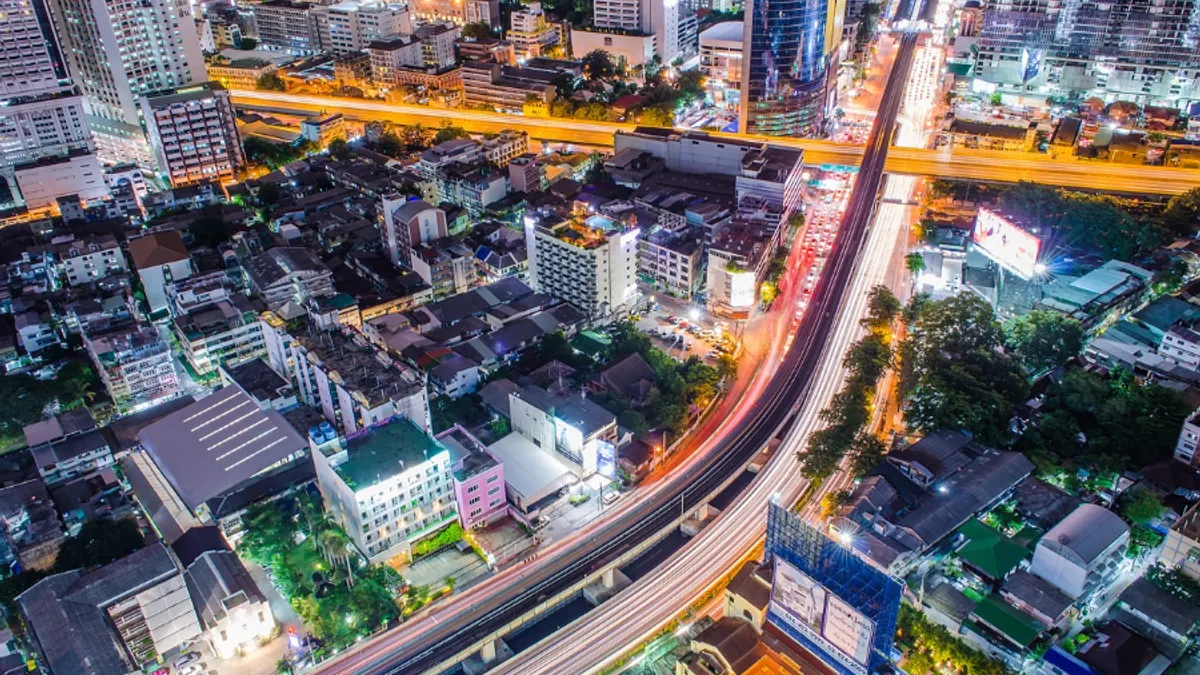Dive Brief:
- The Metropolitan Civic Leadership Alliance, a group of 10 civic organizations representing the country's largest metro regions, are calling on Congress to rethink the $305 billion federal transportation funding bill that is set to expire this fall.
- The group, with backing from two former secretaries of the U.S. Department of Transportation (USDOT), sent a letter to Congress outlining how they'd like Fixing America’s Surface Transportation (FAST) Act to be re-imagined and reauthorized with "greater funding and flexibility." The alliance is made up of regions that include almost 20% of the country's national population and 30% of the country's gross domestic product.
- The alliance's letter to Congress requests more forward-looking, integrated transportation systems and requested the following policy and funding changes for the next bill:
- Create a "fair playing field" for funding
- Focus on major cities and metro regions
- Expand the country's multimodal freight program
- Use metropolitan innovation to reduce congestion
- Connect economies with intercity rail
- Improve transit systems
- Fund airport improvements
Dive Insight:
The alliance accused Congress and USDOT of limiting competition for grants to rural or less populated areas, and is requesting that more funding be made available to large metropolitan regions as well.
Congestion relief is another major issue that the letter calls attention to, with federal policies and funding lacking support to cities dealing with congestion. New programs, however, could help target those areas with "comprehensive, multimodal transportation solutions" through grants to help entice innovation, the group writes.
"Reauthorization is an opportunity to fundamentally improve how our nation invests in transportation," Ray LaHood, former Transportation Secretary from 2009-13, said in a statement. "Metropolitan regions are our nation’s economic engines. To remain competitive, they need a strong federal infrastructure investment program."
President Donald Trump's 2021 budget proposal requested a 13% discretionary spending cut for USDOT, CityLab reports. However, the president's previous attempts to reduce funding to USDOT have not been successful and discretionary transportation funding has actually been on the rise in recent years.
In fact, cities across the country are making strides in their local-level planning to get more residents out of cars and onto public transit to reduce congestion.
Minneapolis, for example, recently released a 252-page draft transportation plan that calls for 75% of residents to be within a 5-minute walk of transit by 2030. And while traffic delays are increasing slightly across cities, congestion also does appear to be stabilizing in some of the most congested metro areas, according to a recent report. Washington, DC, for example, is one of the most congested cities in the country, and it has decreased congestion by almost 11% since 2018.
The push to reduce car use, however, can be a difficult endeavor for federal funding considering that Congress gives $40 billion annually a year for roads, while public transit agencies are given $2.3 billion annually for projects, Vice reports.
"By making federal funding more flexible and targeting it to metropolitan areas, we will be able to leverage innovation and get more out of every dollar spent," Sam Skinner, former Transportation Secretary from 1989-91, said in a statement.
The following organizations signed on to the letter: the Bay Area Council, Civic Committee of Commercial Club of Chicago, Columbus Partnership, Greater Houston Partnership, Greater Washington Partnership, Massachusetts Competitive Partnership, Metro Atlanta Chamber, Partnership for New York City, Silicon Valley Leadership Group and The Washington Roundtable.













